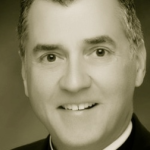ChurchNext Design Team Lists Their Thanksgivings
Can we ever give God (and so many around us) enough praise and thanks for the blessings we enjoy? OK, so enough of beginning blog posts with rhetorical questions – and onto the thanks we have in our hearts for this project.
So we asked the team (pictured above) to chime in about what 6 months of working on ChurchNext has inspired in them. Here are their responses:
Ashley Busse
I have so enjoyed learning from all of our talented teachers: the classes I have taken and the classes I have helped to write have enriched my life greatly already. I love learning and thinking more deeply about new and different topics; I love how ChurchNext combines education, technology, spiritual growth, encouragement, and community in new and exciting ways. I love sharing these courses with my friends, and I love the varied backgrounds and styles of all of our lecturers; there truly is something for everyone. Most of all, I am grateful for the humble integrity and vision of ChurchNext’s leaders. What a blessing this ministry is and is to become.
Shannon Kelly
I am thankful for the people who have signed on to be a part of this venture. The amazing teachers give of their time and talent so that others may learn and engage with a wide variety of topics. Without the teachers, we would not have the classes. At the same time, I’m thankful for the congregations and students who have come along on this adventure of online learning. Their willingness to try something new, to engage in discussions and learning in an alternative way, and their feedback on the courses make this all worthwhile and meaningful for me.
Julie Lytle
While I was doing my doctoral studies in 1998, I wrote a paper identifying that “One Hour on Sunday is not Enough” and proposed that parishes needed to take advantage of the emerging interactive technologies to connect members beyond Sunday services for faith formation and fellowship. I celebrate ChurchNext and am grateful to the collaborators – presenters, facilitators, technicians, congregational leaders, and course participants – who have turned that vision into a reality!
Stacy Williams Duncan
Over the last several months I have been thankful, again and again, for my ChurchNext colleagues’ willingness to take risks. In a time when what is known about effective online education changes on almost a monthly basis, it would be easy to take a wait-and-see approach: Once things have settled down and become more reliable, then we can begin to do online Christian Education. Instead of taking this safe (and boring) route, Chris launched ChurchNext, knowing that there would be bumps along the way and much to learn. Chris and Shannon have modeled their willingness to learn from what goes well and what needs to be improved in every course and each design-team meeting. I am grateful for their leadership, which is inherently entrepreneurial, and their commitment to make online Christian Education accessible now.
Karen Robertson Henry
Striving to be in a state of thankfulness helps me to be more aware, and can so often immediately move me from either fussing with what is around me or not noticing what good is around me, to being so much more full of appreciation. Thankfulness changes to color all that I was seeing before. Being in a state of thankfulness for the ministry of ChurchNext helps me to place God more squarely in the midst of this work and it then becomes another avenue through which I gain color in my life, because as I learn, collaborate and write, I feel God working through me, passing on to others as it were, the baton of color.
Chris Yaw
I am thankful for the innovative clergy who were willing to take a chance and swim into uncharted waters. I am thankful for the instructors who generously share their gifts with poise and passion. I am thankful for the best design team anywhere, Shannon, Julie, Ashley, Karen, and Stacy, whose enthusiasm and dedication is only surpassed by their abilities to perform and imagine. I am thankful to our dedicated technology partners at Pathwright, Paul, Michelle, Louisa, Greg and Mark. I am thankful to the congregation of St. David’s for giving their rector a very long leash. I am thankful to God for the inspiration and guidance without which any of this could happen. And I am incredibly thankful for my wife Natalie who not only believes in this project and provides excellent counsel, but graciously takes on other duties while I take on this one. Thank you, thank you, thank you!
May God bless you and your family this Thanksgiving. We look forward to continuing the adventure with you!



 OK – so you’ve got the ChurchNext online school, know which classes to offer, and are excited to launch – now the big question: what should we name our school?
OK – so you’ve got the ChurchNext online school, know which classes to offer, and are excited to launch – now the big question: what should we name our school?
 Sure, you’ve probably heard the term ‘flipping the classroom’ – if you haven’t it refers to the idea that instead of learning about a topic in class and then practicing (i.e. doing homework) at home – the students actually learn about the topic on their own time (i.e. an online video or class) and then spend that precious classroom time putting the new learning into practice when they come together, face to face.
Sure, you’ve probably heard the term ‘flipping the classroom’ – if you haven’t it refers to the idea that instead of learning about a topic in class and then practicing (i.e. doing homework) at home – the students actually learn about the topic on their own time (i.e. an online video or class) and then spend that precious classroom time putting the new learning into practice when they come together, face to face.



